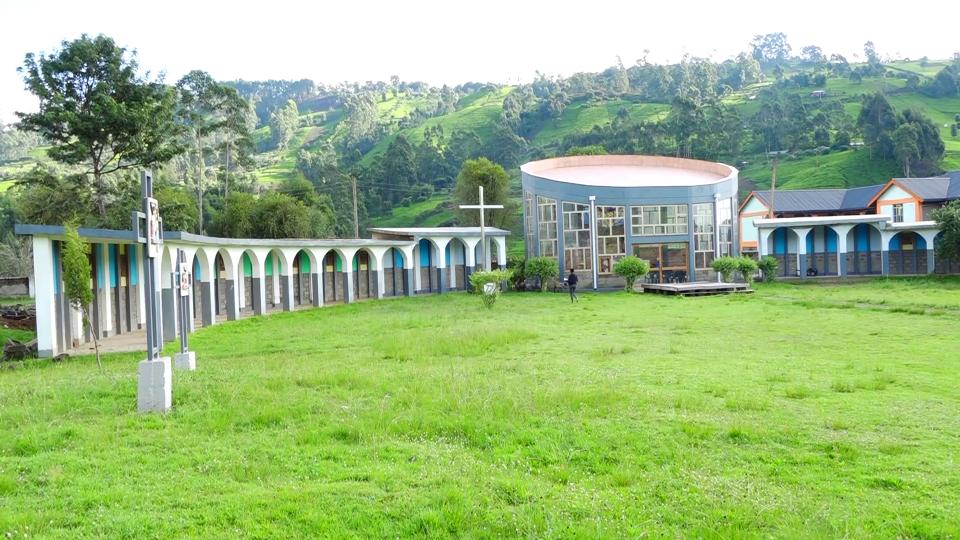
THE family of prominent Agikuyu paramount chief Karuri wa Gakure is processing a section of his ancestral land for donation to the Catholic Church in honour of his legacy.
The chief, born in 1840, was appointed in the early 1900s during the early period of the British colonial administration in Kenya.
The free-spirited and progressive chief who constantly traveled from his Tuthu backyard at the slopes of the Aberdares to Nairobi to meet colonial leaders and engage in trade invited Consolata Missionaries from Italy to teach his children and community members to read and write.
The missionaries accepted the invite and traveled to Naivasha by train before traversing the treacherous Aberdare Forest terrain to Kangema.
There, they found residents worshipping under a mugumo tree and held the first service under the same tree before constructing structures from wood acquired from the Aberdare Forest.
They then constructed hospitals and schools which made them popular, prompting many residents to join the church.
The chief, renowned for his multi-faceted role as a leader, medicine man and warrior, was baptized in 1916 at the age of 76 years and adopted the Christian name Joseph before passing away soon after, leaving behind a healthy and enlightened community.
“This gesture is a way of honouring the long-standing friendship between Karuri wa Gakure and the early Catholic missionaries,” Gakure’s fourth generation grandson Francis Macharia said.
Macharia said the land harbours a rich history as the place where the Consolata Missionaries first conducted a mass in the Mt Kenya region and served as their entry point to the area.
“This is where they settled and is also where the chief was buried. Concluding the process of handing over the land to the church will help us fulfil his legacy and preserve the relationship he started”.
The family hailed Gakure for single-handedly making it possible for Kangema and Murang’a residents to access education at a time when it was not common.
Joakim Karuri, another descendant, said the progressive chief saw education as a means of securing a better future for his children and the community.
“He gave them a place to settle and protected them in return for the advanced health services and education they provided,” he said.
He said the family had unanimously agreed that it was its responsibility to fulfil their forefather’s wish to have the land handed over to the church.
The land in question hosts the paramount chief’s traditional homestead structures that the family said should be preserved as national heritage.
It also hosts Tuthu Catholic Church, the first in the region, which many Catholics visit for pilgrimage.
“We felt it was time to actualise the good intentions of our ancestor who harboured a vision far beyond his time,” he said.
The family also challenged the state to recognise and honour traditional leaders who helped shape the nation into modernsation and liberty.
Their graves, they said, should be well marked and preserved, and the leaders recognised as heroes to make sure the roles they played are not forgotten.
Such sites, they proposed, should be converted into sites of remembrance and education for future generations.
Speaking on behalf of the Catholic Church, surveyor Francis Kibe expressed appreciation to the family, terming the decision as a remarkable act of generosity.
“The church will use this land to serve the people spiritually, socially, and educationally.”
Church officials confirmed that the land will be used to build a new parish church, a community centre, and eventually a learning facility in line with Karuri’s original vision.
As a prominent trader and medicine man, Karuri helped save his village from a small pox pandemic ravaging most parts of the Central region by quarantining villagers to control the spread in the 1890s, years before he was appointed as chief.
To stop people from coming in and out of the village, he poured a black powder all around it, and a rumour spread that anyone who would gaze at it would die. This stopped people from moving around, saving them from the pandemic.
He is also hailed for recommending the appointment of chief Wangu wa Makeri, one of the few women chiefs during the colonial period, in 1902.
Wangu was by then married to Makeri and chief Gakure, an enthusiastic traveler, would camp over at their home on the way to Governor Francis Hall’s office in Murang’a town, and his entourage would be lavished with alcohol, milk and dances.
Wangu, a strict leader, was however toppled in 1909 after malicious rumours were spread that she would sit on men’s backs and she was labelled a tyrant, and her story has been used a century later to discourage women's leadership.












